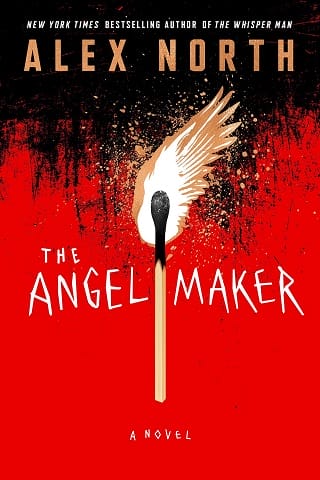Chapter Thirty
Leland lifted the lid of the briefcase carefully. It opened toward him, so he rotated it on the table to display the contents to Christopher Shaw and then watched as the boy stared down at what was inside.
The boy was scared, of course, but Leland could tell the sight before him pulled at him regardless. Money had a way of doing that to people. This was more than most would ever see collected in one place, especially someone like Christopher Shaw. And while Leland was sure Shaw had handled countless old banknotes in his grubby lifetime, he doubted he had ever encountered notes like these ones: packed together tightly, pristine and new. Money was supposed to be crumpled and sullied; like power, it was meant to be used. And like power, it grew dirtier with every transaction. But the notes in the suitcase between them now had the innocence of a newborn baby.
But not for long.
"As you can see," Leland said, "I am a man of my word."
Christopher Shaw looked up at him for a second, then back at the money. Leland could imagine the calculations going through the boy's head. Not about what he could do with such an amount—although nobody was immune from that—but about the situation as a whole. The boy was trying to decide if he had misjudged Leland. Despite his obvious nerves, he was wondering if everything was actually going to play out the way he'd hoped. And for a glorious moment, Leland could tell the boy believed it might.
But money never stays innocent for long.
As you can see, I am a man of my word.
And Leland had not been speaking to Christopher Shaw.
He glanced over the boy's shoulder. The owner of the café was a man named Jefferson, whom Leland had arranged for Banyard to speak to yesterday. He watched as Jefferson walked slowly out from behind the counter and over to the door.
The key made only the quietest of sounds in the lock.
Leland could also imagine what was going through this man Jefferson's head. In his experience, people had the most astonishing ability to rationalize away their faults and failings, a predictable facet of human nature that had served him well in life. Years from now, Jefferson would believe he had detached his future self from what he was doing right now. If he thought of it at all, it would seem like an action performed by another man entirely, a man who by that point was lost in the past and beyond judgment. But the truth was that God, watching us from outside of time, sees everything at once.
Leland closed the briefcase and slid it to the edge of the table—and from there, his hand clamped down on Christopher Shaw's wrist. He could tell from the sudden shock on the boy's face that he hadn't expected Leland to be able to move so fast or to be as strong as he was.
Shaw stood up, fighting against his grip.
And Leland stood up with him. Out of the corner of his eye, he could see their reflections in the window beside them, and the sight of them there pleased him.
Why—it almost looked like they were dancing.
"What the fuck are you doing?" Shaw said. "We had a deal!"
"The deal was for the book."
Shaw was still trying to fight, panicking properly now, but Leland found it easy to restrain him. The boy was pathetically, contemptibly weak. But then he twisted harder, and the rose in Leland's lapel came loose and fell broken to the floor.
"You'll pay for that," Leland said.
"Help me!"
"I'm sorry, kid."
Jefferson. He had already picked up the briefcase and was moving over to the wall. Leland stared down at the remains of the rose for a moment, and then up at the reflection of himself and Shaw in the window.
And then Jefferson flicked off the light, and the two dancers vanished.
 Fullepub
Fullepub 



